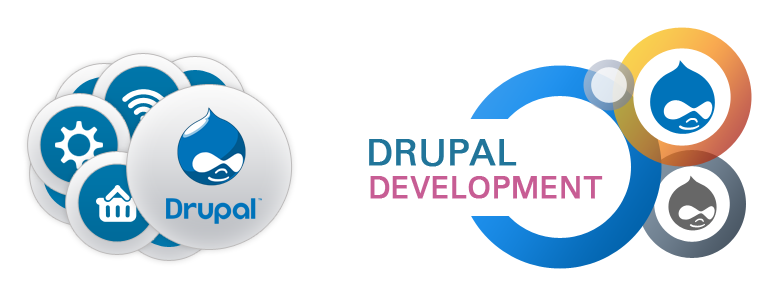Information on Drupal
Website Management System - Build Something Amazing
Drupal
is a free, open-source web development platform for online content and user communities. Drupal powers some of the busiest sites on the web, and can be adapted to virtually any visual design. Drupal runs over a million sites, including WhiteHouse.gov, World Economic Forum, Stanford University, and Examiner.com. IMPORTANT differences between Drupal and Wordpress
Why Drupal?
- Drupal is arguably the most flexible open-source CMS available. Designed to be customised, virtually every detail of its interface and its functionality can be changed, or whole new modules written bespoke as required
- Drupal is scalable. Scalability is built into the very fabric of the code. If a site needs expanding to increase functionality such as a full scale forum, multi-language option or an ecommerce shopping cart, core modules do not have to be reprogrammed to incorporate new features.
- Drupal is proven at enterprise level. Some of the most visited and recognisable websites in the world are built on Drupal; The Louvre, The Economist, The White House, Zynga and the UK Government.
- Drupal has a global community. Developer knowledge of Drupal does not end with Catch, there is a vast global community of developers. Whether you are looking for a solution to a problem you have encountered, or are looking for someone to program a custom module for you, help is readily accessible.
- Drupal incurs no license fee. Unlike proprietary content management systems we keep the source code of our solution freely available under the terms of the GNU General Public License 2 (GPL). As such is not subject to signing costly licensing agreements, enabling the sharing of knowledge and furthering the development community.
Drupal's "Out Of The Box" Features
While Drupal is infinitely customisable, "out of the box" it has a number of great features ready to go and well adapted for small to medium scale projects as well as large scale ones.
- Friendly URLs - URLs that are both user and search engine friendly, while also being fully customisable.
- Role based permission system - Permissions can be setup for individual users. For example, a super-user can edit each area of the site, but a standard-user is only able edit the news page.
- Searching - All content is fully indexed and searchable at all times as standard, allowing the user the quick access to their desired content. We have developed additional search functionality allowing us to customise the user journey around search to highlight the most important content first.
- Version control - The content management system version control system tracks the details of content updates including who changed it, what was changed, the date and time of changes made to your content and more. Version control features provide an option to keep a comment log and enables you to roll-back content to an earlier version.
- Analysis, Tracking and Statistics - The CMS can produce browser-based reports with information about referrals, content popularity and how visitors navigate your site and works alongside the industry standard Google Analytics to ensure no click goes unreported.
- Logging and Reporting - All important activities and system events are captured in an event log to be reviewed by an administrator at a later time allowing for a full audit trail.
- Data capture - Forms specially designed for collecting data securely store the information within the CMS database, accessible by only those users with permission.
Drupal is radically changing on-line spaces. Is your space one of them?
When you ask whether you should use Drupal OR write everything from scratch, I'd definitely go for Drupal.
What makes Drupal shine for me is its versatility in defining "atomic" elements of any website: user profiles ("registered", "entitled-to-edit-agenda-items", "can-only-read-stuff-older-than-a-week", etc. etc.), content types ("agenda-item", "address-card", "big-article", etc.), and above all: its taxonomy, i.e. an extremely flexible system to organize any "semantic content" you want to throw in your site. Having these "atomic building blocks" at your disposal, Really feels like a biiiiig relief. It's simply Fun to play around with them.
Sure, you can program all this yourself. But you'd be in for many, many months, and then still you'd probably have only a fairly shaky thing. Drupal deals with about 100 database tables, one hundred. Just getting those to work nicely and reliably together would give you many months of headache.
The confidence in the power of Drupal as an enterprise-class application framework by many fortune 500 companies confirms that the flexibility of Drupal as a platform
combined with solid design and development resources, creates the possibility for rich user experiences and large-scale web solutions. This is solid proof that these companies can combine the robust flexibility of the Drupal platform, with the world class skills of dedicated designers and developers from the Drupal community, to build rich content work flows and social networking features into a powerful web tool sets to serve and support massive customer bases globally while eliminating licensing and residual costs from competing proprietary solutions.

